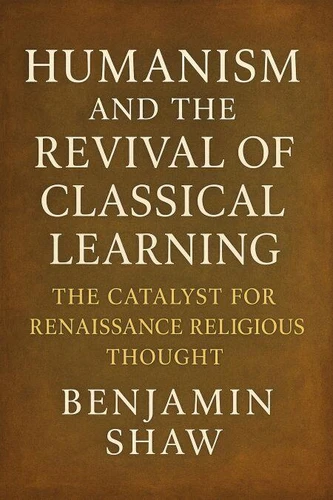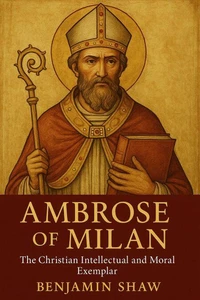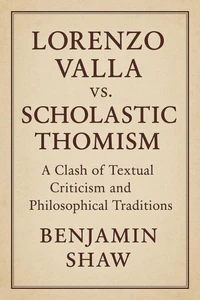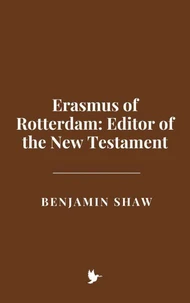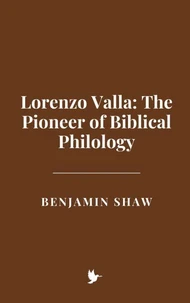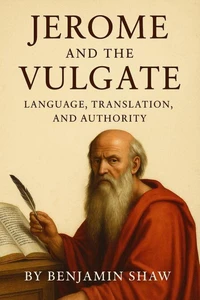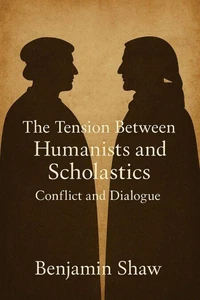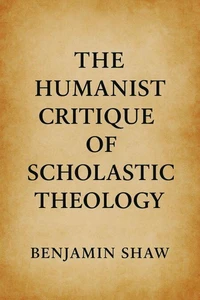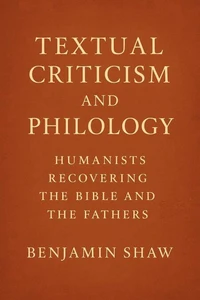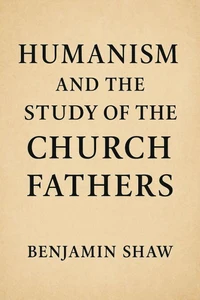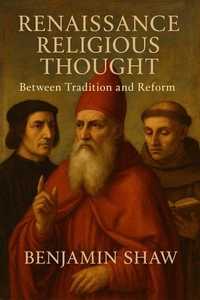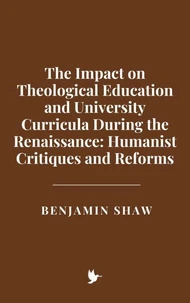Humanism and the Revival of Classical Learning: The Catalyst for Renaissance Religious Thought
Par :Formats :
Disponible dans votre compte client Decitre ou Furet du Nord dès validation de votre commande. Le format ePub est :
- Compatible avec une lecture sur My Vivlio (smartphone, tablette, ordinateur)
- Compatible avec une lecture sur liseuses Vivlio
- Pour les liseuses autres que Vivlio, vous devez utiliser le logiciel Adobe Digital Edition. Non compatible avec la lecture sur les liseuses Kindle, Remarkable et Sony
 , qui est-ce ?
, qui est-ce ?Notre partenaire de plateforme de lecture numérique où vous retrouverez l'ensemble de vos ebooks gratuitement
Pour en savoir plus sur nos ebooks, consultez notre aide en ligne ici
- FormatePub
- ISBN8230757542
- EAN9798230757542
- Date de parution06/08/2025
- Protection num.pas de protection
- Infos supplémentairesepub
- ÉditeurIndependently Published
Résumé
This groundbreaking study traces the transformative power of Renaissance humanism in reshaping religious thought and practice across Europe. Centered on the principle of ad fontes-a passionate return to the original sources-humanists revived the languages, texts, and moral philosophies of classical antiquity, sparking a profound renewal in biblical scholarship, theological inquiry, and devotional life.
Through meticulous recovery of Greek and Latin manuscripts, the study of the Church Fathers, and innovative educational reforms, humanism challenged medieval scholasticism, inspired ecclesiastical reform, and paved the way for the Reformation and Counter-Reformation. Benjamin Shaw offers a rich, nuanced exploration of key figures such as Erasmus, Luther, and Catholic humanists, revealing how their engagement with classical learning redefined Christianity's intellectual foundations.
This book illuminates the enduring legacy of Renaissance humanism, whose call to critically engage sacred and classical texts continues to shape modern religious scholarship and spiritual practice. For scholars, students, and readers fascinated by the intersection of culture, faith, and history, this work offers a compelling narrative of how the revival of classical learning catalyzed one of the most dynamic periods of religious transformation in Western civilization.
Through meticulous recovery of Greek and Latin manuscripts, the study of the Church Fathers, and innovative educational reforms, humanism challenged medieval scholasticism, inspired ecclesiastical reform, and paved the way for the Reformation and Counter-Reformation. Benjamin Shaw offers a rich, nuanced exploration of key figures such as Erasmus, Luther, and Catholic humanists, revealing how their engagement with classical learning redefined Christianity's intellectual foundations.
This book illuminates the enduring legacy of Renaissance humanism, whose call to critically engage sacred and classical texts continues to shape modern religious scholarship and spiritual practice. For scholars, students, and readers fascinated by the intersection of culture, faith, and history, this work offers a compelling narrative of how the revival of classical learning catalyzed one of the most dynamic periods of religious transformation in Western civilization.
This groundbreaking study traces the transformative power of Renaissance humanism in reshaping religious thought and practice across Europe. Centered on the principle of ad fontes-a passionate return to the original sources-humanists revived the languages, texts, and moral philosophies of classical antiquity, sparking a profound renewal in biblical scholarship, theological inquiry, and devotional life.
Through meticulous recovery of Greek and Latin manuscripts, the study of the Church Fathers, and innovative educational reforms, humanism challenged medieval scholasticism, inspired ecclesiastical reform, and paved the way for the Reformation and Counter-Reformation. Benjamin Shaw offers a rich, nuanced exploration of key figures such as Erasmus, Luther, and Catholic humanists, revealing how their engagement with classical learning redefined Christianity's intellectual foundations.
This book illuminates the enduring legacy of Renaissance humanism, whose call to critically engage sacred and classical texts continues to shape modern religious scholarship and spiritual practice. For scholars, students, and readers fascinated by the intersection of culture, faith, and history, this work offers a compelling narrative of how the revival of classical learning catalyzed one of the most dynamic periods of religious transformation in Western civilization.
Through meticulous recovery of Greek and Latin manuscripts, the study of the Church Fathers, and innovative educational reforms, humanism challenged medieval scholasticism, inspired ecclesiastical reform, and paved the way for the Reformation and Counter-Reformation. Benjamin Shaw offers a rich, nuanced exploration of key figures such as Erasmus, Luther, and Catholic humanists, revealing how their engagement with classical learning redefined Christianity's intellectual foundations.
This book illuminates the enduring legacy of Renaissance humanism, whose call to critically engage sacred and classical texts continues to shape modern religious scholarship and spiritual practice. For scholars, students, and readers fascinated by the intersection of culture, faith, and history, this work offers a compelling narrative of how the revival of classical learning catalyzed one of the most dynamic periods of religious transformation in Western civilization.

